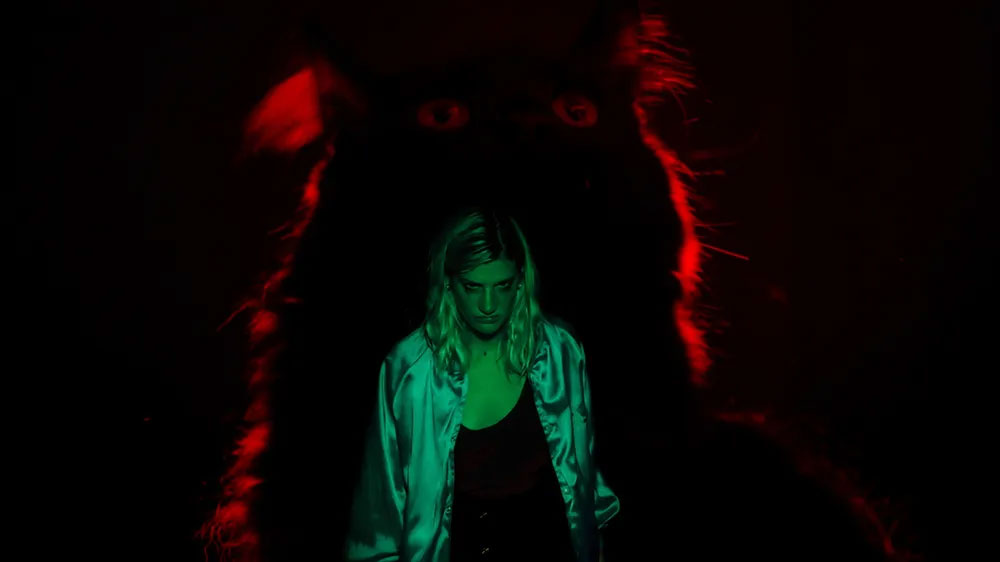Mary Dauterman’s first feature Booger (2023) is a body horror-comedy that tugs at the heartstrings as much as it triggers the gag reflex. Amidst a modern genre film landscape that often features horror as a metaphor for grief—The Babadook (2014) and Hereditary (2018) being prime examples—Booger is a refreshingly fun and gross addition to this particular canon.
The film sees Anna (Grace Glowicki) in the depths of grieving the sudden death of her best friend and roommate Izzy (Sofia Dobrushin). She avoids work, rent, and those who care about her by curling up in bed and staring at her phone. The only things that make Anna feel like her friend is still alive are videos of her doing karaoke—singing about piña coladas and getting caught in the rain—and Izzy’s quarrelsome cat Booger. When Booger bites Anna and flees the apartment, Anna is determined to track him down, desperate to not lose the pet that mattered so much to her best friend. But the thick dark hairs that sprout from her bite marks signal that the change she’s undergoing is not part of the typical mourning period. Anna begins to take on very cat-like qualities: she’s easily distracted by birds and rays of sunlight on the floor, overwhelmed by sounds and smells she’s never noticed before, and increasingly detached from the human relationships and concerns she used to have. Is she adopting Booger’s way of seeing the world or just trapped in the nightmarish fog of grief?
As Anna’s transformation continues, Dauterman films both her perspective and the viewer’s in disorienting ways. Anna traverses the world in a kind of drunken, dreamlike state, with memories of Izzy mingling with the present. As Anna becomes more of a cat, the viewer observes her from an increasingly cat-like viewpoint—around corners and from dramatically upward angles. This independent film also makes creative use of its budget: a standout scene features Anna crawling across a furry floor that occupies the entire frame and resembles Booger’s coat. As far as more explicit “gross-out” scenes go, the smaller moments in Booger are the most visceral, such as when Anna pulls long, stringy hairballs from deep in her throat into a barroom toilet.
Unlike Cat People (1942/1982), the feral feline-ness in Booger stems not from arousal or female sexuality but from abjection. Anna’s feline persona isn’t graceful and confident, it is twitchy and monstrous. (She awkwardly scratches her body against trees and furiously licks every morsel of wet cat food out of a tin can.) Glowicki’s performance is as devastating as it is hilarious as she unabashedly commits to the physical comedy the role entails while also embodying the mix of exhaustion and confusion that characterizes intense grief. She grounds the film’s fun body horror in an emotional reality that is recognizable to those who have experienced similar loss, the kind that makes you feel like an untamed creature among the living.
Booger screens tonight, October 18, at Spectacle Theater. Filmmaker Mary Dauterman will be in attendance for a Q&A.



